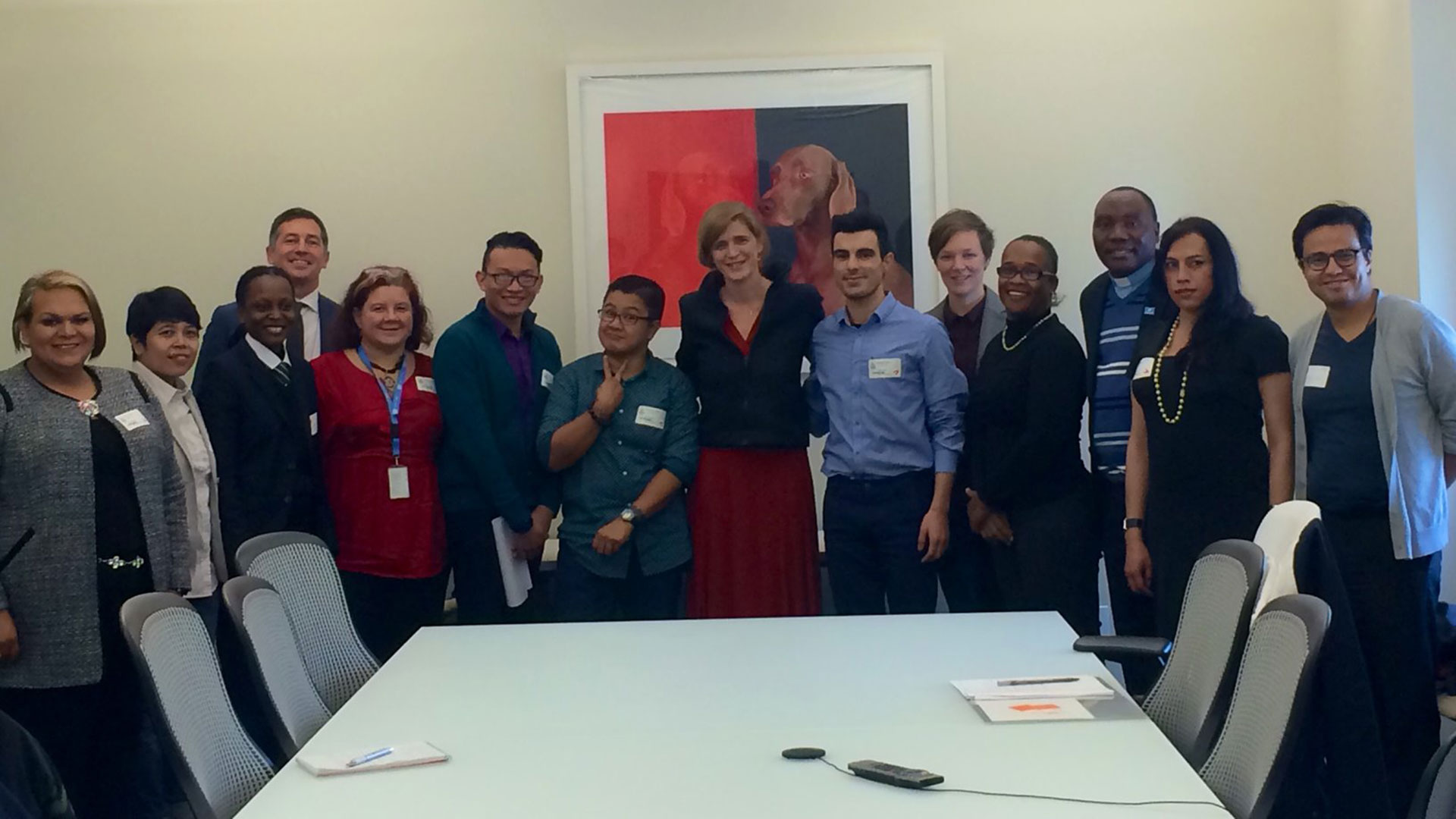On Human Rights Day last year (December 10, 2015), LGBTIQ organizations from all over the world met up at the United Nations Headquarters in New York to communicate regional concerns and issues regarding human rights and policies. This event, organized by Outright Action International, aims to give the experiences of LGBTIQ persons from different regions their much-needed visibility in the global front.
Each representative were given two minutes to deliver a statement about their issues and recommendations. ASEAN SOGIE Caucus (ASC) was sent to represent the ASEAN region. Ryan Silverio, the Regional Coordinator of ASC, presented the statement to Ambassador Samantha Power, the US Permanent Representative to the United Nations.
In this statement, ASC expressed the appreciation for the US role in promoting LGBTIQ rights and awareness globally. President Obama’s directive raised the bar on LGBTIQ-centric policies, providing an example for other countries and regions to consider. The appointment of Amb. Randy Berry, the first US Special Envoy for the Human Rights of LGBTI Persons, showed the United States’ ongoing commitment to promote and ensure marginalized people’s rights globally.
ASC also provided some recommendations to help strengthen the role of the US in promoting and protecting LGBTIQ rights in ASEAN. ASC presented four policy suggestions, taking into consideration specific issues that affect countries in the region:
- To increase support for existing LGBTIQ governments, encouraging them to take a leading role in promoting human rights in the multilateral arena,
- To strengthen international and domestic protection mechanisms for human rights defenders,
- To encourage a regional and domestic pivot toward promoting LGBTIQ-supportive policies,
- And to integrate LGBTIQ rights in all international development programs, making it a key facet of a country’s development progress.
The United States have been quite instrumental in many international development initiatives, effectively using economic and trade sanctions to put pressure on countries not inclined toward implementing human rights policies. It is the recommendation of ASC and the representatives of the ASEAN region that while this is a useful strategy, it would be more effective for the US and all other regions to adopt a human rights-centric approach in development and policy-making.
This way, national governments will be compelled to enact human rights policies because of their commitment to the welfare of their people, not because of their fear of trade sanctions and subsequent economic implications.
{aridoc engine="google" width="600" height="800"}images/2016/ASC_Statement_-_Amb._Power_-_Dec2015.pdf{/aridoc}




